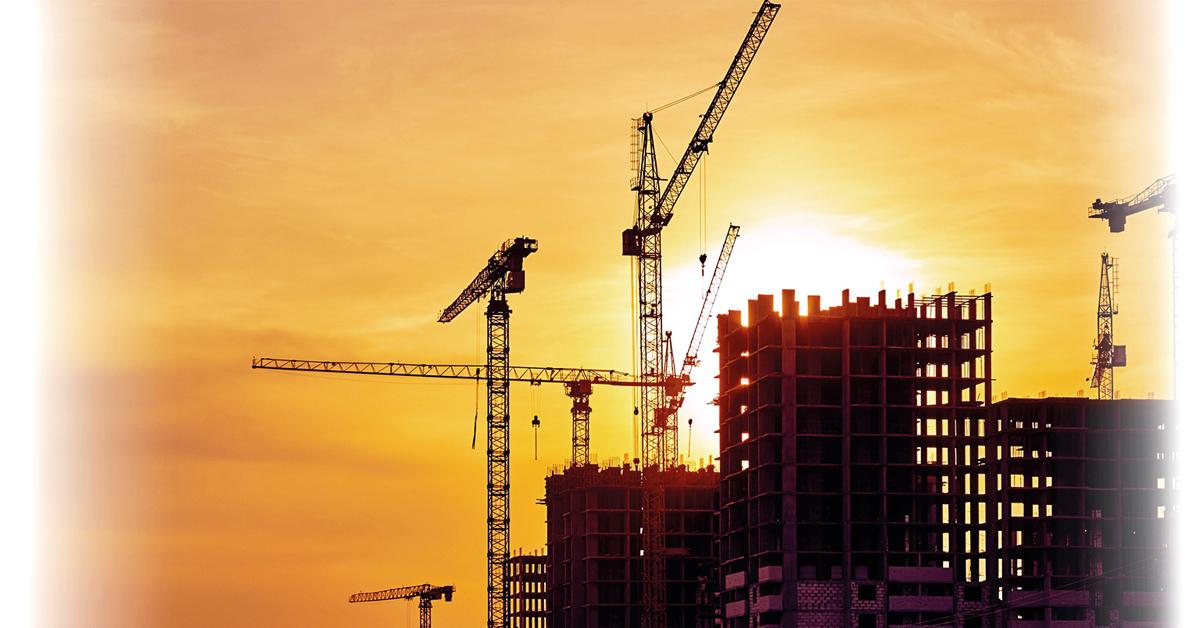Industry insiders believe that the impact of the Russian invasion on Ukraine will not affect the property market in India immediately, but could result in a price hike due to rising costs of raw materials
Indian real estate has been reeling under the pressure of rising input costs, which have grown by 18 per cent in the last two years alone. However, since the Russia-Ukraine conflict began on February 24, 2022, a rise in prices of crude oil, steel and cement has been real estate industry’s greatest concern.
Crude oil prices have been steadily rising since the invasion and reached an all time high of $140 per barrel last week — highest since 2008. Crude prices, however, witnessed a relief this week when Brent Crude, the benchmark for global oil prices, slipped below $100 per barrel, but creeped back up to $110 24-hours later.
Crude oil concerns
Even though India imports most of its crude oil from Saudi Arabia, which is then refined to petrol and diesel, India is still affected by headwinds in the global crude oil market. Developers believe this will result in an unprecedented increase in transport costs.
Further, the risings cost of raw materials like steel and cement as well as labour will finally be passed on to the buyer. This will also impact projects’ delivery timelines.
Harsh Vardhan Patodia, president, CREDAI, forecasts that the price rise will be more apparent in the coming quarter, which will bear the full brunt of the hike in fuel prices. “The prices of crude oil play a vital role in the growth of every industry. Oil prices have continued to rise over the last couple of months, owing to surging demand and tight supplies. However, the increase in crude oil prices has not been transferred to the consumers yet (with retail fuel prices staying unchanged for more than four months). So, if the crude oil prices do not cool down in the immediate future, cement makers will be forced to pass on the burden to the buyer, as 60 to 65 per cent of their business is either directly or indirectly linked to crude prices. Eventually, the impact will trickle down into the real estate industry as well. While the industry has been resilient, the rise in prices of raw materials by 20 to 30 per cent has forced developers to marginally increase the prices of projects. Industry forecasts indicate that prices will rise in the coming quarters and given the current crisis, the surge may grow manifold,” says Patodia.
Rising cost of steel
Other than prices of crude oil, the effects have begun to show in the prices of steel, which in early March saw a rise of about Rs 5,000 per tonne. Russia is the fourth largest producer of steel in the world and contributes about 12 per cent to the global steel market.
Going by demand-supply dynamics, sanctions on Russian exports will affect the availability of steel in the global market, thus resulting in price hikes.
Steel is one of the essential materials for construction of buildings and an average of 60 to 70 tonne of steel is required to construct one floor in a building with an area of 1,000 sq metre.
Elaborating on the imminent rise in housing prices due to various levies, duties, and now input costs, Sandeep Runwal, president, NAREDCO Maharashtra, says, “Due to market uncertainty owing to the ongoing conflict between Russia and Ukraine, there is a possibility of a significant impact on the Indian market too, which will eventually affect the real estate industry. The upcoming quarter might see a hike in housing prices due to a probable surge in rates of raw materials owing to the current global conditions. The industry has witnessed robust sales in the last few quarters and current uncertainties will only put brakes on the real estate sector’s recovery.”
Increasing cost of cement
Having seen a price hike of five per cent in January this year, cement prices will also go through an upward revision following the Russia-Ukraine conflict.
Arvind Goel, member, CREDAI-MCHI, says, “The effect of the price rise will not reflect on the ready-to-move-in inventory or on projects, which are a few months away from completion. But any new inventory or home that is soon to be launched will see a rise in prices immediately. This is because the government did not reduce input costs (before the war) due to which developers were already stretching themselves thin. Hence, developers who were willing to absorb the input cost until now will not be in a position to do so without incurring losses. Hence, the increased cost will be passed on to the buyer. Costs may go as high as 15 per cent if this crisis prevails and the sanctions on Russia are not lifted soon.”
Price dynamics of Indian realty
- Input costs of raw materials rose by 18 per cent since 2020;
- Interest rates are seeing a slight increase from the end of 2021;
- Developers are increasing property costs as wafer-thin profits seen during pandemic are now unsustainable.




Leave a Reply